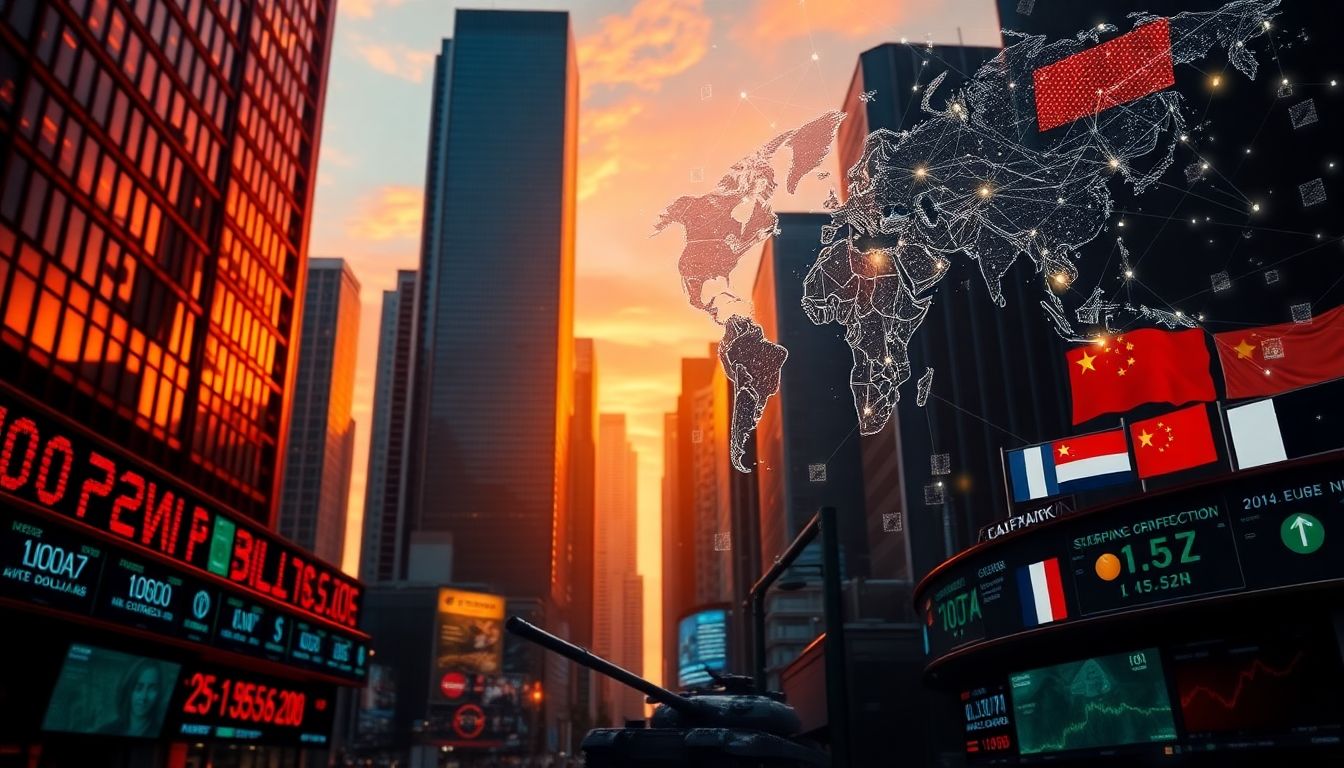Contents
The Impact of Geopolitical Events on Currency Markets: An In-Depth Analysis
Introduction
Geopolitical events shake the world often, and their ripple effects spread to currency markets. When conflicts, sanctions, or political crises erupt, currencies can swing wildly. Understanding these shifts is key for investors, traders, and policymakers alike. Recent examples like the Ukrainian crisis or trade tensions between the US and China show how quickly currency values can change due to political unrest. Staying alert helps you predict and react to these movements to protect and grow your investments.
How Geopolitical Events Influence Currency Markets
The Mechanisms Behind Currency Volatility
Currency markets react strongly to geopolitical risks. When news breaks about wars, sanctions, or political upheaval, supply and demand change rapidly. Investors tend to pull their money from currencies seen as risky and buy those seen as safe. This causes sharp movements in exchange rates. Additionally, uncertainty about future policies can lead central banks to alter interest rates, which further impacts currency values.
The Immediate Market Reactions
When a crisis hits, currencies often experience swift swings. For example, during the Brexit vote in 2016, the British Pound plummeted overnight. Similarly, the Swiss Franc surged suddenly as investors ran to safety during the EU referendum. These quick moves show how real-time news influences trader decisions. To keep pace, traders must watch breaking news and stay connected through live market updates.
Long-term Effects on Currency Valuations
Some geopolitical issues don’t just cause quick jumps; they change currency trends over time. Countries may shift their reserves or investments based on risks. Suffering prolonged tensions can lead to a currency’s decline or rise. For example, after Russia invaded Ukraine, sanctions caused the Russian Ruble to drop dramatically. Over months or years, such tensions shape currency strength and weakness.
Key Geopolitical Events That Shape Currency Movements
Military Conflicts and Wars
Wars create chaos and unpredictability. When a country’s stability is threatened, its currency can become volatile. The ongoing Ukraine-Russia conflict, for example, has pushed the Euro and Ruble into sharp swings. Traders see conflict zones as risky, raising risk premiums for currencies tied to them. These premiums make currencies less attractive, often leading to depreciation.
Economic Sanctions and Trade Wars
Sanctions act like economic blockades. They restrict currency flow and make exchange rates more unstable. The US sanctions on Iran restricted the Rial’s value, causing it to weaken heavily. The US-China trade war also shook markets, especially for the Yuan and other emerging market currencies. Such measures force investors to rethink which currencies are safe bets.
Political Instability and Elections
Political crises or changes can unsettle currency markets quickly. When governments face turmoil or hold major elections, currency values often react unpredictably. In Brazil, presidential elections caused the Real to jump or fall. Traders must watch these events closely, adjusting their positions to avoid losses from sudden swings.
Geopolitical Alliances and Agreements
International ties matter too. When countries sign or break trade deals, currencies can change value fast. For example, regional trade blocks like ASEAN or the EU influence member currencies. If an agreement unravels, the affected currencies may weaken. Conversely, new alliances can boost confidence and strengthen currencies.
Risk Management Techniques
Using hedging tools like options or futures helps protect your investments. Diversifying into different currencies or assets reduces risk. Keeping an eye on real-time news feeds and risk alerts also helps you stay ahead of market surprises.
Analytical Approaches
Tracking geopolitical risk indices can give you a quick snapshot of market stress. Combining these with fundamental analysis of economies helps you understand how events tie into currency trends. Some experts also share forecasts based on their geopolitical assessments, giving you an edge.
Practical Tips for Traders and Investors
Stay flexible. If a conflict escalates, be ready to adjust your holdings fast. Follow trusted news sources for fresh updates. Use stop-loss orders to cap potential losses. Avoid getting caught in overly risky positions during tense times.
Conclusion
Geopolitical events have a clear and often dramatic impact on currency markets. From wars and sanctions to elections and alliances, these factors drive short-term volatility and long-term trends. Staying informed and managing risks carefully can help you navigate these choppy waters. As world politics continues to change, your best tool remains knowledge. Keep learning and watch the markets closely—your investments depend on it.
